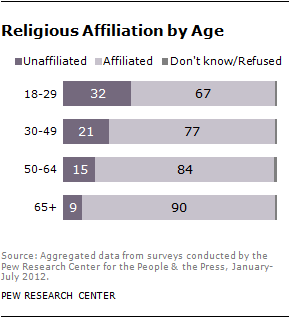The weekly report on secular demographic research
by Jordan Auburn
Christmas ÔÇô but not as we know it?
 This week weÔÇÖre going to look at the different attitudes the American public hold towards Christmas. This festive celebration is, first and foremost, a religious one. However, during a time in which church attendance and religious affiliation is declining globally, the meaning of Christmas is changing, with many secular signposts. This week, letÔÇÖs have a look at some research done by LifeWay Research, where we can observe some very telling trends.
This week weÔÇÖre going to look at the different attitudes the American public hold towards Christmas. This festive celebration is, first and foremost, a religious one. However, during a time in which church attendance and religious affiliation is declining globally, the meaning of Christmas is changing, with many secular signposts. This week, letÔÇÖs have a look at some research done by LifeWay Research, where we can observe some very telling trends.
A partly secular celebration
LetÔÇÖs look at the reality of the situation. 90% of Americans voluntarily admit they celebrate Christmas, yet 20% of the same public have been identified by Pew research as ÔÇ£atheist, agnostic,
Firstly, we see that just 61% of the US public attend Church during Christmastime ÔÇô the most important religious festival for the Christian faith. What is more, just 77% of these churchgoers attend to honour Jesus. And here, we have our first secular observance: Up to 23% of churchgoers simply attend for social, familial or irreligious reasons.
Not an anomaly
We must not mistake social niceties and cultural traditions for deeply held religious observance. As the research shows, a significant 57% of those polled suggested they would be very or somewhat likely to attend Church if invited by others. Indeed, 12% of all males said that social or familial factors were the primary reason they attended religious services during the festive season. Moreover, there is no reason to respond to such figures with shock or disbelief. In the United Kingdom, as in various other Christian-majority countries, the influence of religion during Christmas, and indeed more generally, is steadily declining.
The Millennials are leaving
 Just 54% of 18-34 year oldÔÇÖs are now attending Church during this particularly religious festival. Additionally, a quarter of 18-24 year oldÔÇÖs are simply attending to be with family members and friends, with over half uninterested in honouring Jesus ÔÇô the intended nucleus of the celebration.
Just 54% of 18-34 year oldÔÇÖs are now attending Church during this particularly religious festival. Additionally, a quarter of 18-24 year oldÔÇÖs are simply attending to be with family members and friends, with over half uninterested in honouring Jesus ÔÇô the intended nucleus of the celebration.
Once more, this damning indictment of the clergyÔÇÖs inability to inspire the young should be thoroughly unsurprising. In failing to construct new and engaging arguments, and realizing its ceiling with regards to cosmological or philosophical discoveries, the young, naturally inclined towards learning and exploration, have become attracted to the progressive discourse of secular science. Attempts by the Church to reconcile religion and faith, backed financially by such organizations as the Templeton Foundation, are unlikely to usurp the increasingly rational position of the engaged young population.
Encouraging a secular celebration
Christmas is becoming increasingly centred on the fulfilment we feel as a result of congregating with family and friends. As society evolves, we should acknowledge that traditions, too, evolve. The religious and non-religious should be free to celebrate how they wish without social stigma or government interference. Because isn’t Xmas the season of world peace and goodwill to others?
